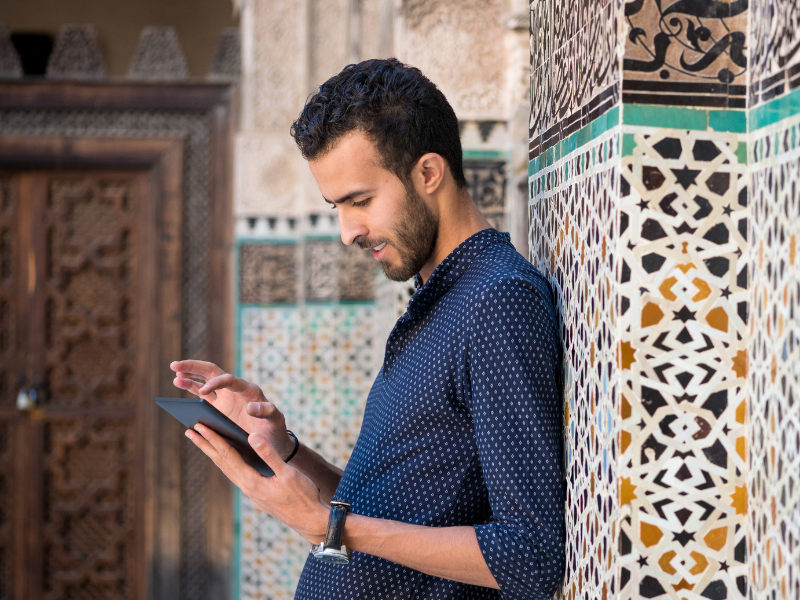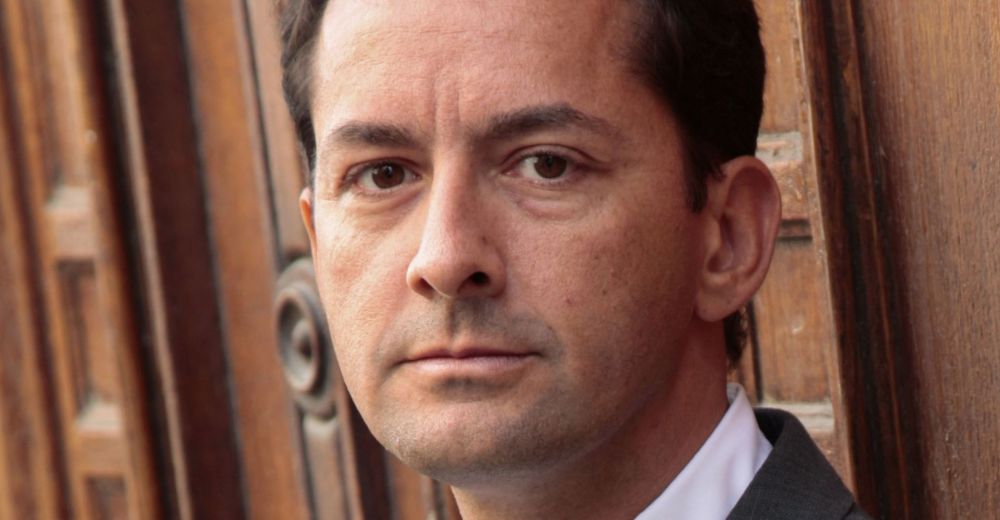Tunisia, Algeria, Morocco: a changing region
The Maghreb is currently undergoing profound changes. Here's a look back at these radical transformations, and some advice from Hakim El Karoui.

A collection of private interest groups
Understanding this region means first and foremost grasping its anthropological underpinnings and the specific cultural heritage of the Maghreb, in particular the relationship between tribal structures and the formation of states. What is a "tribe"? In simple terms, it's a set of interpersonal relationships between private interest groups. Maghreb societies can be understood as the sum of these private groups.
In Morocco, these groups are organized around a monarch with a strong and long-standing institutional authority rooted in history, with a religious dimension as "commander of the believers". There is also financial strength, and the power of the State. Above all, the king arbitrates. This arbitration is carried out on the basis of achievements and on a regional basis, by promoting trusted individuals. This system is essentially the same in Algeria and Bourguiba's Tunisia.
City identities are marked, and they are largely tribal identities. The Fassis are not the Rbatis, nor the people of Tangier or Casablanca. In Algeria, people from the west are not those from the east or from Kabylia. In Tunisia, the Sfaxiens are not the Djerbiens, and so on. These regional identities are linked to private and family solidarities, with alliances.
In their drive for democracy, the Tunisians have set up institutions that make decision-making complex. Power is shared between the Presidency of the Republic, the Head of Government and the Assembly. This institutional system can be inefficient, particularly when it comes to administrative, political and, by extension, economic decision-making. President Saïed's action on July 25, 2021 is a consequence of these institutional difficulties.
Between the rise of feminism and Islamization
Outside the Maghreb, the incredible transformation of these societies, brought about by the universalization of education and literacy, is often overlooked. The great phenomenon is the rise of women, with massive access to secondary and higher education. There are more girls than boys at university today, in all three Maghreb countries. This has an impact on demographics, with girls studying, marrying and having children later in life. As a result, fertility rates are falling. More and more, even if there are still delays, these women are working. The female activity rate has risen to 27%-28%: it's still very low, but the ratio is increasing.
Europeans coming to the Maghreb believe they see oppressed women. In fact, the opposite is true. There is a profound emancipation movement, with a system that is being questioned by this change. At the same time, the rise of Islamist movements (which goes back a long way) can be seen as a correlated reaction to this transformation in the status of women.
Codes and behaviours: beware of pretence
French visitors to Morocco believe they understand the country very well. In reality, they are often mistaken. This illusion stems from a historical, cultural and human familiarity, as Franco-Maghrebians represent no less than 8% of the French population. Yet Maghrebi codes and behaviors are completely foreign to them. Particularly when it comes to the organization of men and women, society and the law. In France and Europe, the law has a universal status, whereas in the Maghreb, it is embedded in complex power relationships. Over and above the pure and simple application of the law, the "powerful" can, for example, create networks of affianced individuals who will expect various forms of assistance from them. It's a system in which, while some believe they have the power, there is also an obligation to redistribute, which some turn into a right to prevarication. This link is fundamental, because without it, the solidarity of the group is broken.
Maghreb and Europe: towards new value chains
Economies are also changing. The pandemic has raised many questions about value chains and their (re)localization in or near Europe. From this point of view, the Maghreb is "part" of Europe, both geographically and politically.
The Maghreb's competitiveness is strong, although there are regional differences depending on the industry, the relative weight of the middle classes or the level of education. The Algerian economy remains in a class of its own, with an economic model based on hydrocarbons (21% of GDP and 93% of exports in 2020, according to Coface).
The traditional business model, particularly in Morocco and Tunisia, was low-cost export to Europe. We started out in textiles, and then expanded into automotive parts, aeronautics (especially for Morocco), engineering and IT services. We're moving upmarket in services, while still retaining important textile and industrial activities. And then there's tourism, which is in fact the export of services and the import of Europeans into these countries.
The Maghreb has a card to play in personal services, in all areas related to ageing, health and so on. We're not just talking about retirement, as an alternative to Portugal, but also healthcare (sometimes non-critical, such as aesthetics or dentistry), with a high quality of service compared to what's on offer in Europe. At a time when European social security systems are seeking to rationalize their costs and are turning to the private sector, the Maghreb has a lot to offer.
Professional relations
When coming to the Maghreb, it's important to bear in mind that local economic leaders will be very attentive to the creation of local value. Entrepreneurs and investors must adapt their approach with sincerity, in particular by demonstrating the extent to which they are contributing to development, training, skills transfer and so on.
Business relations are not homogeneous across the Maghreb. Algerian managers are well aware of the global importance of their country's mineral wealth. Tunisians can sometimes seem more insular than Moroccans, who look to different horizons, to Africa or the United States. Moroccan elites have a longer history than their Algerian counterparts, and are closer to the state. In Tunisia, the situation is somewhere in between.
Modesty and discretion
Once again, French people in the Maghreb should beware of false cultural proximity. The first piece of advice is modesty. The traditional risk for a French person is arrogance. Interlocutors from the Maghreb will be sensitive to behavior and discretion. You have to be modest, without overdoing it, and first and foremost about understanding countries that are very different, despite a shared history. Modesty means bearing in mind that, in fact, we don't understand. We think we understand, but we don't. For example, you can let someone comment negatively on your country, but it's never up to a newly arrived expatriate to say so!
